“Getting sick was almost forbidden, now we have a health center”
by Helvisney Cardoso, UN Mozambique Communications, Reporting and Outreach Specialist.
Tags
With funding from the Government of Sweden and technical assistance from UNCDF, the Government of Mozambique has inaugurated a health center adapted to climate change in the Cupo community with the presence of the country’s First Lady.
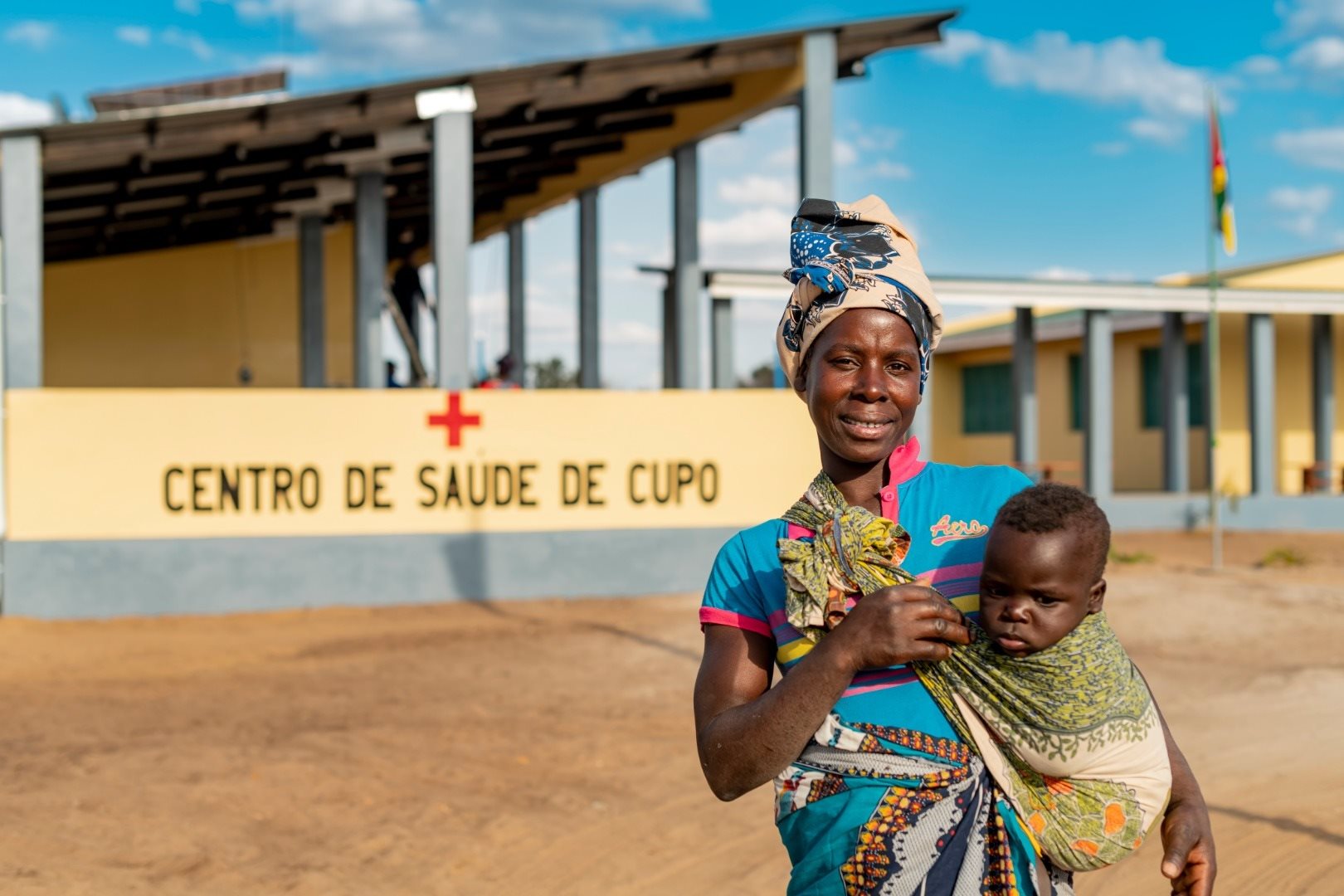
Maria Pedro, 32, is one of the more than 3,000 people beneficiaries of the new Health Center in Cupo, Funhalouro District, Inhambane Province. Credit: UNCDF/Milton Zango.
Forty-two to ninety-five kilometers. These were the distances walked by the citizens of the Cupo community, Inhambane Province, to access the closest health facility. Now, the remote community is home to a brand-new health center, including a maternity ward, supported through the Local Climate Adaptive Living Facility (LoCAL), a Government-led adaptation programme. The center’s inauguration was attended by the First Lady of Mozambique, the Minister of Health, representatives from all levels of government and partners, symbolizing the importance of locally-led climate action.
“Getting sick was almost forbidden”, Maria Pedro, 32, one of the more than 3,000 people to benefit from the new center.
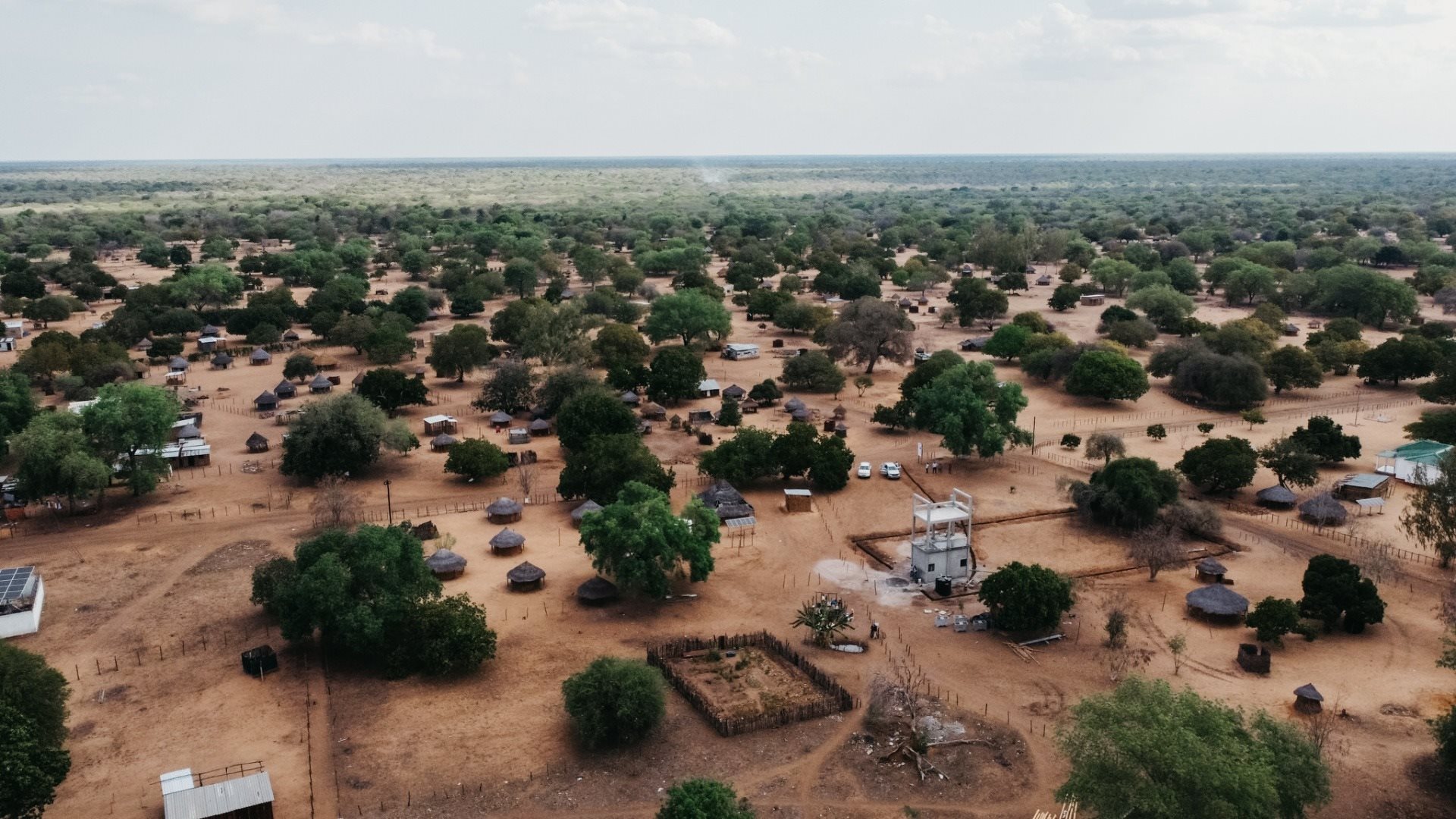
Aerial view of Cupo community. Before the opening of the Health Center, residents had to walk between 42km and 95 km to the nearest health center. Credit: UNCDF/Mbuto Machili.
“To get medical care, people who could afford it, would go after those who have donkeys and carts to transport family members; Pregnant women were the ones who suffered the most, but the population’s problems have come to an end, now that we have a health center right here in Cupo,” said a joyous Maria Pedro.
“With this initiative, we are increasingly bringing primary health services closer to communities, thus observing the commitments assumed by our government, not only to provide the best health services but also to improve the resilience of our communities in the face of the challenges imposed by climate change,” affirmed H.E. Isaura Nyusi, the First Lady of Mozambique.
“These are resilient infrastructures, that are, durable, consistent and resistant to the vulnerability scenarios to which we are all exposed due to the frequent occurrence of extreme weather events in the country”, H.E. First Lady continued.
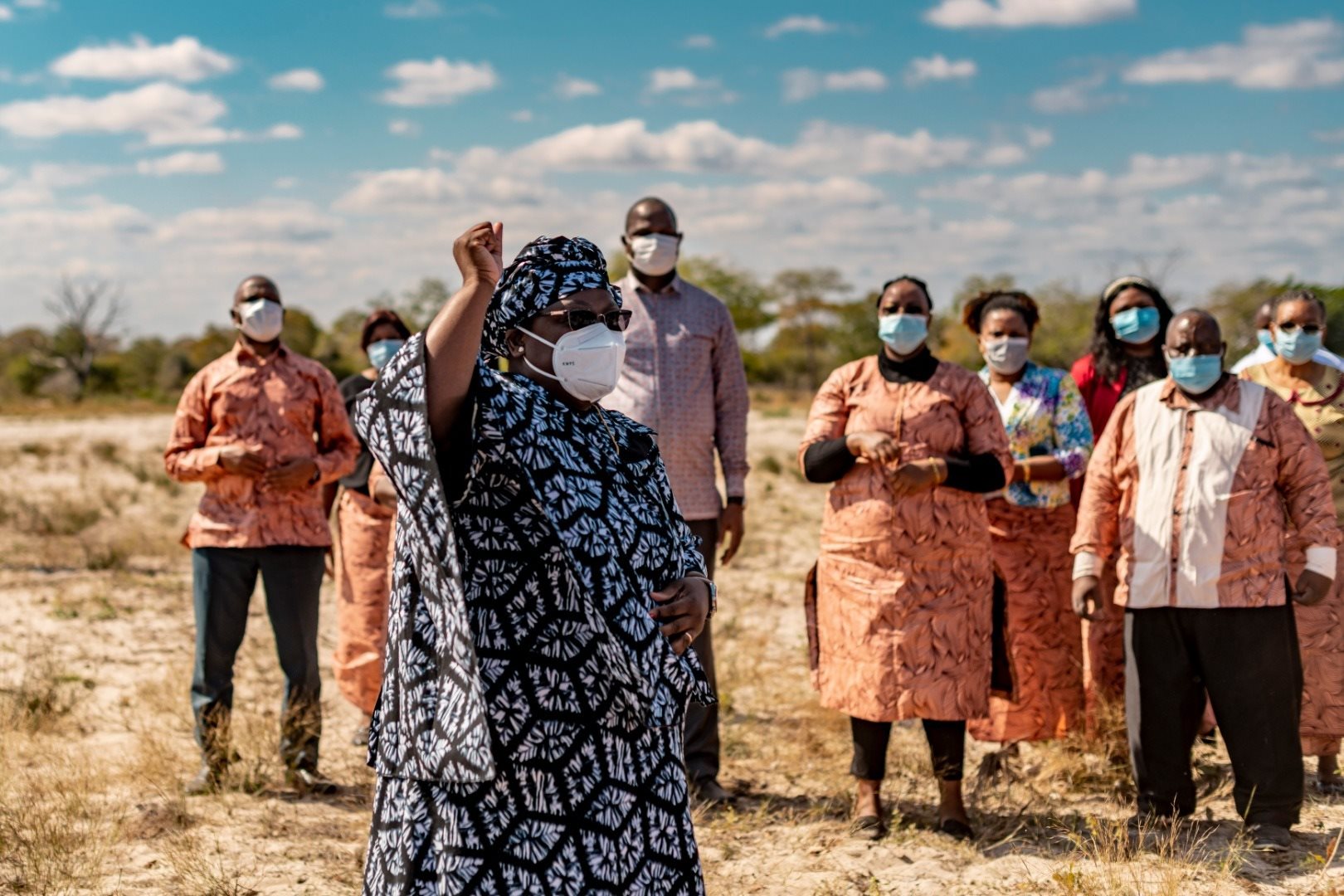
H.E. First Lady of Mozambique, Mrs. Isaura Nyusi, at the inauguration of the new Health Center in Cupo. Credit: UNCDF/Milton Zango.
With funding from the Government of Sweden, and technical assistance from the UN Capital Development Fund (UNCDF), the objective of the LoCAL programme is to finance Local Adaptation Plans and reduce the vulnerability of communities to climate change.
In doing so, LoCAL integrates climate change adaptation into local governments’ participatory day-to-day planning and budgeting systems, while providing access to climate finance and channeling funds directly to local governments.
Cupo community, in Funhalouro District, Inhambane Province, Mozambique, is the most recent one.
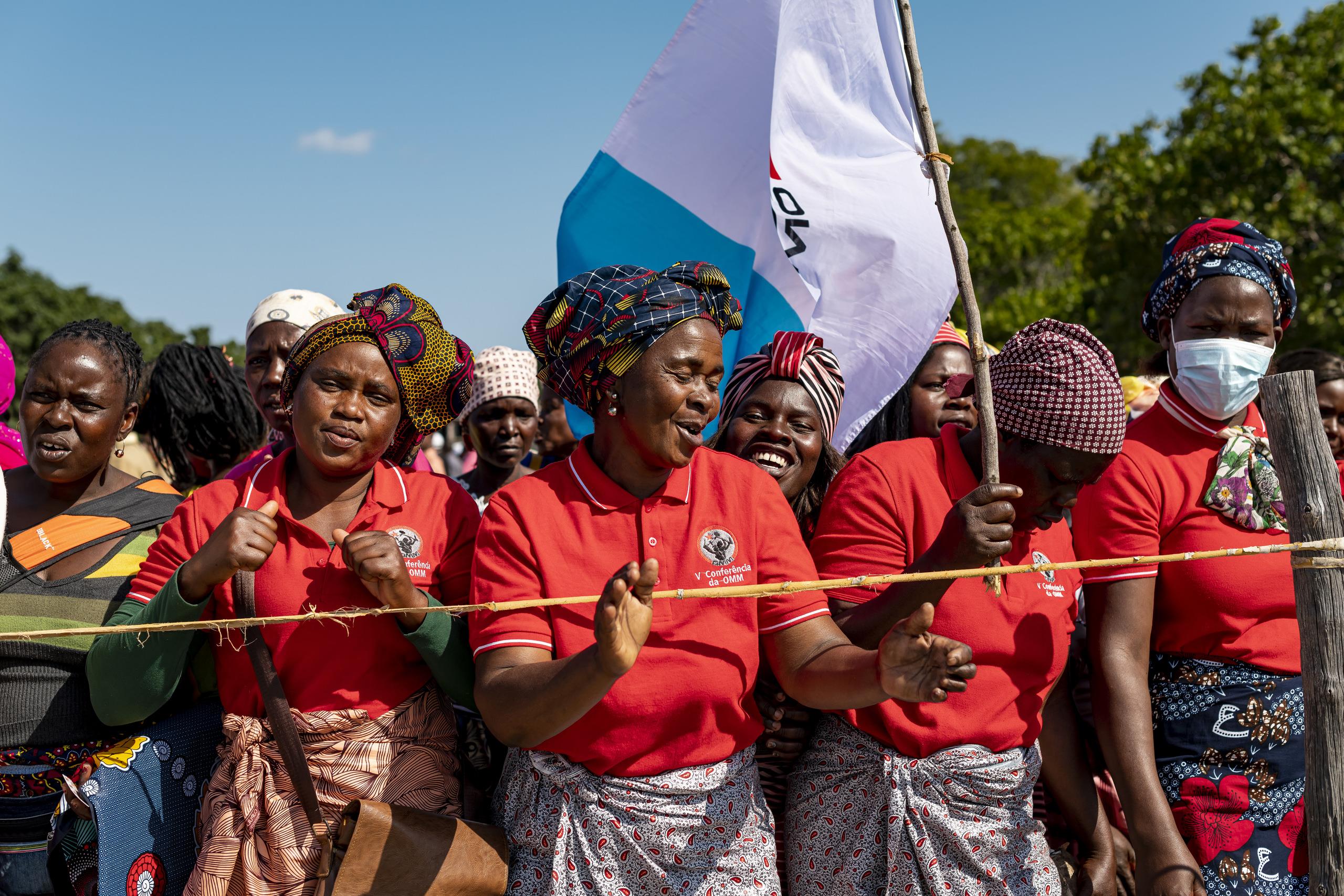
Residents of the Cupo community celebrate the inauguration of the new Health Center. Credit: UNCDF/Milton Zango.
“Today, we inaugurated a health center, one of the many excellent infrastructures that the LoCAL programme has already delivered. Schools, irrigation systems, water supply systems, bridges, maternity wards, health clinics and many other resilient infrastructures that transform the lives of people and their communities”, commented Myrta Kaulard, UN Resident Coordinator and Humanitarian Coordinator for Mozambique, who attended the ceremony.
Also present at the event, Dr. Armindo Tiago, the Minister of Health, said that the Government remains committed to reducing the distances that the population has to travel to receive medical care. He also mentioned that last year all 30 new health units which came into operation in Mozambique were resilient to climate change, urging for more climate adaption investments.
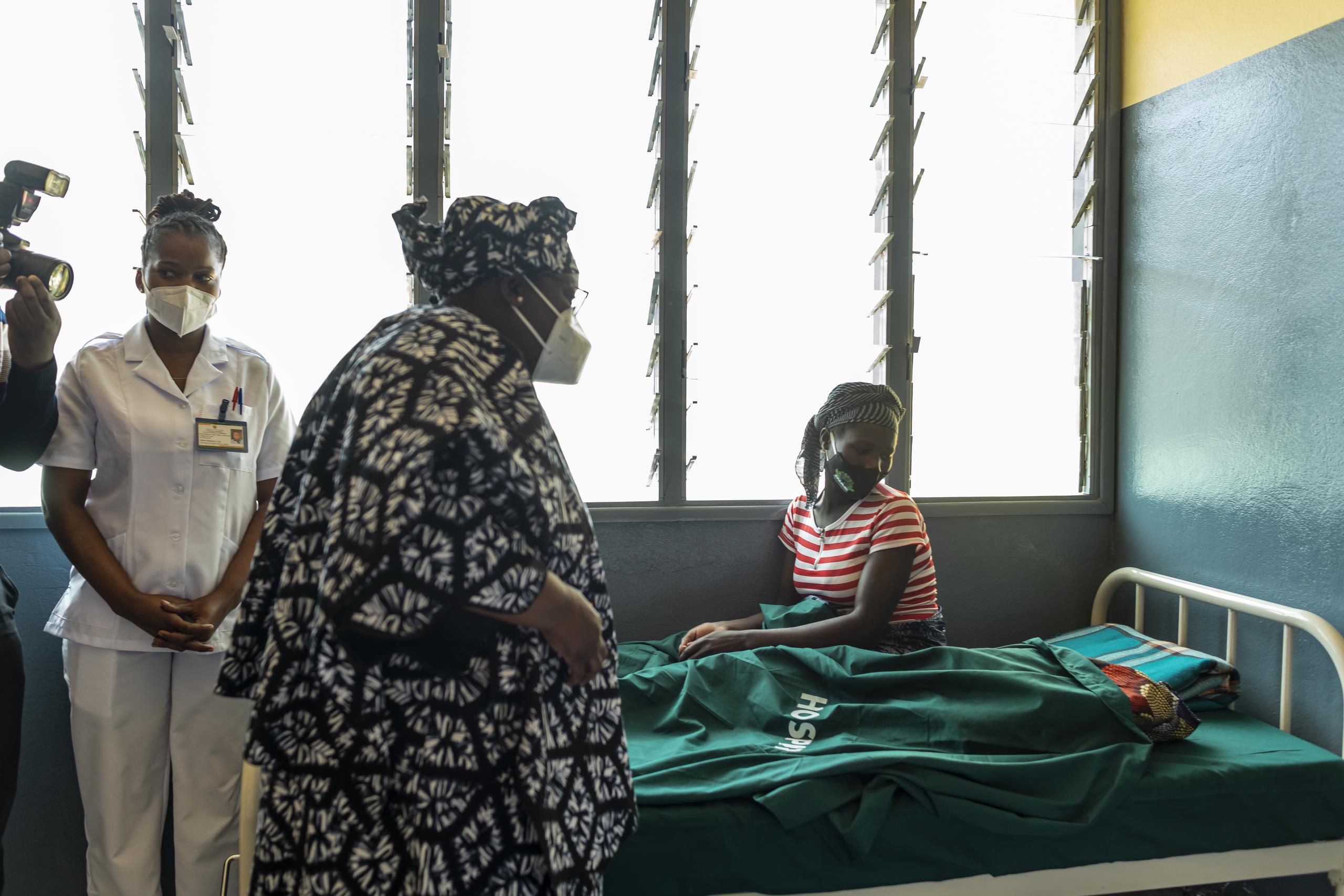
H.E. First Lady of Mozambique, Mrs. Isaura Nyusi, visits patients at the newly opened health center. Credit: UNCDF/Milton Zango.
Since early 2022, Mozambique has been hit by consecutive climatic shocks, including Tropical Storm Ana, Depression Dumako and Cyclone Gombe in January, February, and March respectively, affecting approximately 1 million people.
Communities at the center
The LoCAL Programme proves that local governments have the capacity to implement climate adaptation projects, deliver financial tools, and support its populations through a decentralized decision-making process envisioned by Mozambicans for Mozambicans.
“It is extremely important to involve local communities in the governance processes, as the participatory manner, in which development investments are chosen and prioritized, allows communities to feel that they are being heard and to take ownership of the projects,” commented Daniel Chapo, Inhambane Province Governor.
The inclusive and participatory approach has been central to the implementation of LoCAL.
The process works through the Local Consultative Councils to ensure essential ownership at the local level. First, local communities are engaged in sharing what they consider to be their greatest needs, proposals are forwarded to district and then provincial governments.
According to Paulo Júnior, Programme Officer at the Embassy of Sweden in Mozambique, “[Swedish support to LoCAL] comes from the Government of Mozambique's strategic approach to improving public infrastructure and services resilience to climate change based on a participatory process.”
“In the last two years, the LoCAL Programme has decentralized US$ 6 million to districts in the Gaza and Inhambane Provinces, as well as to both provincial governments,” affirmed Paulo Júnior.
“With this decentralization, we have supported local authorities to reinforce rural livelihoods affected by COVID-19, finance adaptive development infrastructure and provide capital grants to strengthening local government capabilities to budget,” he continued.
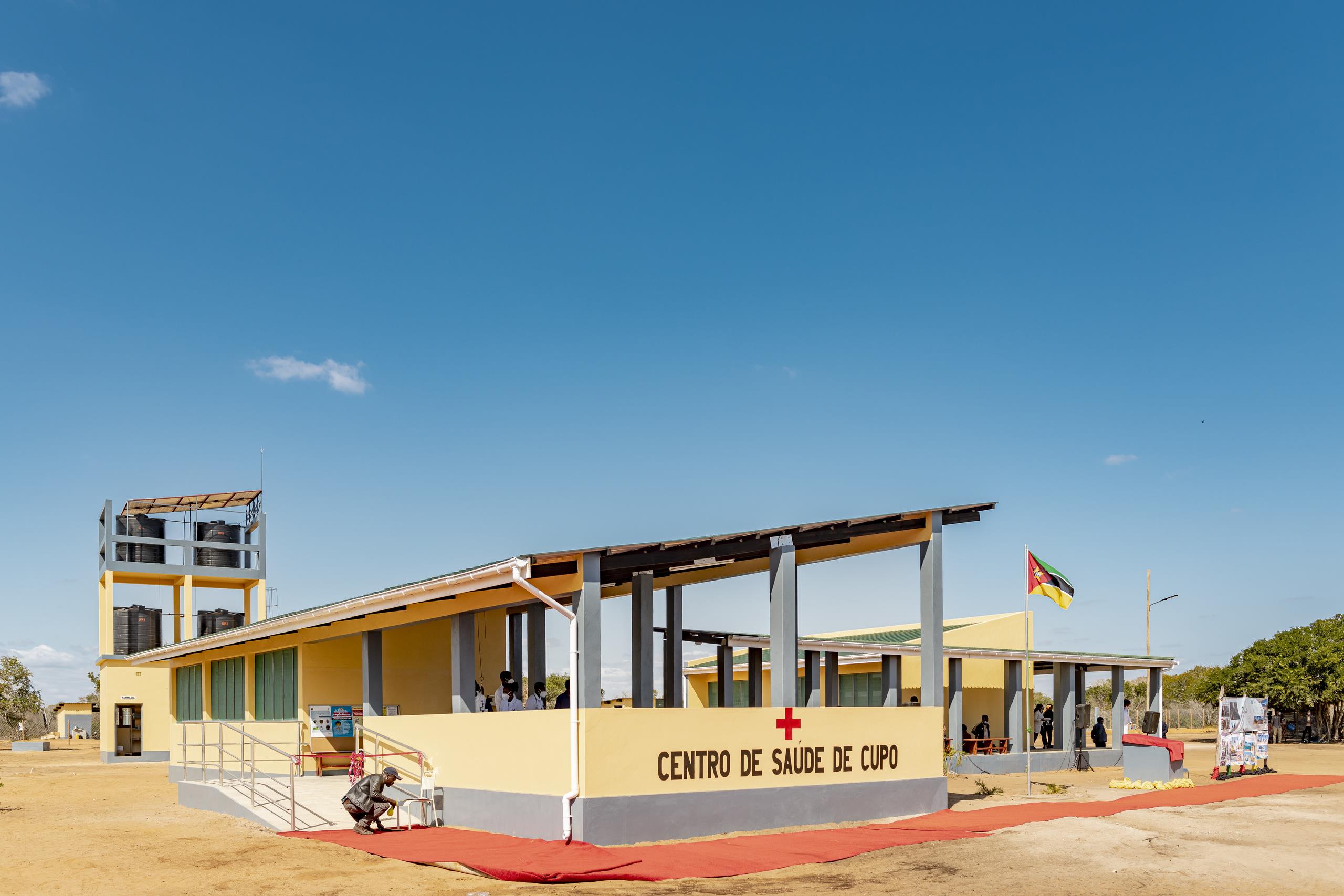
The Health Center in Cupo benefits more than three thousand people from that community, and part of the population of the Chigubo District, in Gaza, and is budgeted at just over 17 million Meticais, financed by the Government of Sweden, through the LoCAL Programme. Credit: UNCDF/Milton Zango.
The fieldwork of the LoCAL Programme is conducted in Mozambique by local authorities with supervision and direct support from the Ministry of Economy and Finance in coordination with the Ministry of Land and Environment, the Ministry of Agriculture and Rural Development and the Ministry of Health through its decentralized governance structures; and technically supported by the UNCDF.
“Through LoCAL, UNCDF will continue to support the Government of Mozambique making sure that local governments lead the planning, budgeting and financing of climate action”, affirmed Ramon Cervera, UNCDF Representative in Mozambique.